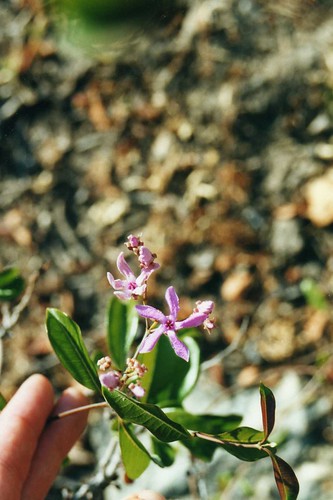EU Rapporteur met opinie over biopiraterij
 Over biopiraterij, octrooirecht, kwekersrecht traditional knowledge en ontwikkelingslanden. The main issue raised in this respect is that of ‘bio-piracy’, which could refer to either the unauthorised extraction of genetic resources, such as plants with medical properties, or to the patenting of spurious inventions based on such resources or traditional knowledge from indigenous peoples without compensation.
Over biopiraterij, octrooirecht, kwekersrecht traditional knowledge en ontwikkelingslanden. The main issue raised in this respect is that of ‘bio-piracy’, which could refer to either the unauthorised extraction of genetic resources, such as plants with medical properties, or to the patenting of spurious inventions based on such resources or traditional knowledge from indigenous peoples without compensation.
Your rapporteur welcomes a reflection on these issues, in the interest of developing countries with the end goal of poverty alleviation, but stresses that the practical implementation of any set of rules for avoiding bio-piracy involves problems of a legal nature which are not easily solved without a proper reflection on, and a correct interpretation of, the current legal
framework as mentioned above.
The legal terminology in the area of intellectual property rights on genetic resources needs to be clarified and consolidated, not least the term ‘bio-piracy’. Any definition of this term needs to have a solid foundation, requiring extensive fact-finding and research. The international community should also define the sui generis systems in force at international level for plant protection in those cases where patent protection is not applicable.
It is furthermore essential to safeguard the interests of small and medium breeders, taking into consideration that excessively broad patent protection in the area of breeding can hamper innovation and progress and become detrimental to these breeders by blocking access to animal and plant genetic resources.
SUGGESTIONS
The Committee on Legal Affairs calls on the Committee on Development, as the committee responsible, to incorporate the following suggestions in its motion for a resolution:
1. Considers that a clear and coherent system of proprietary rights would contribute to the creation of knowledge and its dissemination to developing countries, to the benefit of local entrepreneurship, research, education and poverty alleviation;
2. Stresses that further work must be carried out in order to clarify and consolidate the legal terminology in the area of intellectual property rights on genetic resources, in particular with a view to a definition of the term ‘biopiracy’ based on authoritative figures;
3. Takes the view that future bilateral and multilateral agreements aiming at harmonisation, and in particular those concerning the scope of exceptions and limitations to patent rights, will require careful scrutiny from a development perspective, with a view to achieving global equity for public health in the spirit of the implementation of Paragraph 6 of the Doha Declaration on the TRIPS Agreement, safeguarding local knowledge and, in relation to plant breeders’ rights, securing access to seeds;
4. Takes notice of the work of the World Intellectual Property Organization (WIPO) Intergovernmental Committee on Intellectual Property and Genetic Resources, and encourages similar measures to be taken and consistent definitions to be used at EU level;
5. Reiterates that, against the background of its recent resolution on the patenting of essential biological processes, excessively broad patent protection in the area of breeding can hamper innovation and progress, to the detriment of small and medium-sized breeders, by blocking access to genetic resources;
6. Calls on the international community to take into account the fact that the International Union for the Protection of New Varieties of Plants provides a sui generis system, already in force, for plant variety protection where patent protection is not applicable; recommends that core requirements for effective sui generis models are contemplated;
7. Takes the view that local knowledge of indigenous methods of water exploitation should be scientifically researched and freely disseminated, while technologies covered by patents in developing countries should facilitate innovation in access to water and sanitation.





















































































